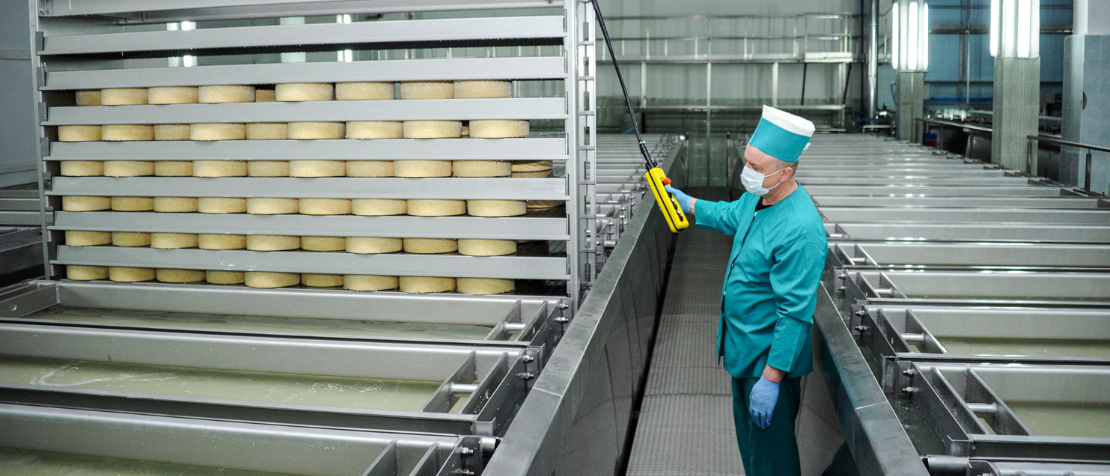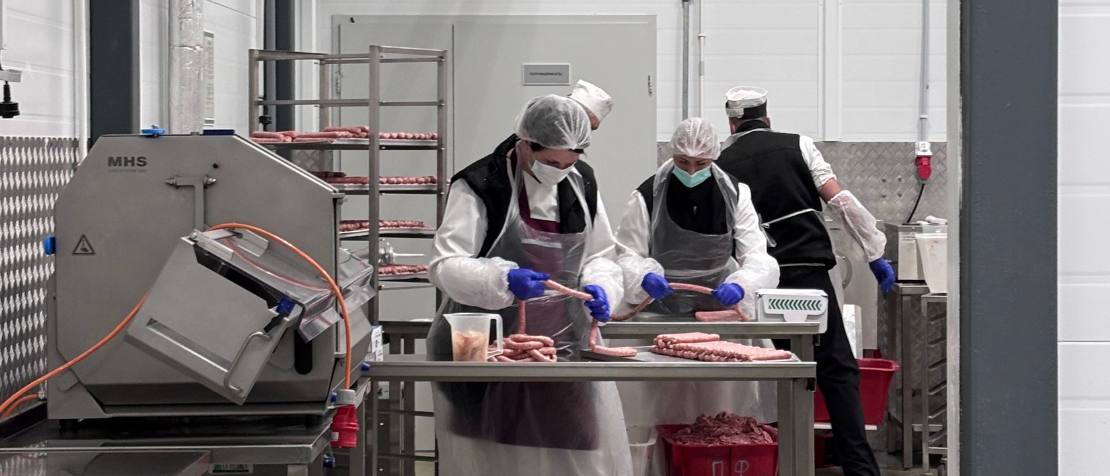Belarus committed to taking food control systems to the next level

©FAO/Sergei Gapon
National food control systems, in line with internationally recognized food safety and quality standards, are a cornerstone of ensuring the safety and quality of the food we put on our tables. The regulatory authorities for food safety oversee the protection of the entire food chain, managing food safety hazards, fraud issues, emerging risks and emergencies. Food control systems protect the consumer and safeguard food trade, both nationally and internationally. As such, they are crucial for governments in fulfilling their fundamental role to protect the health of their citizens.
Recognizing this priority, the Republic of Belarus has requested support from the Food and Agriculture Organization of the United Nations (FAO) to facilitate a self-assessment by using the Food Control System Assessment Tool (FCSAT), developed by FAO and the World Health Organization (WHO). The assessment will review the current system, identify priority areas for improvement, and develop a strategic investment plan based on the findings, as part of the FAO project, “Strengthening Strategic Investment in Food Safety”. The tool identifies the strengths and weaknesses of the national system, as well as any performance gaps, providing evidence-based, tailor-made recommendations for improvement.
Last week, an FAO expert mission took place to Belarus to validate the preliminary findings of the assessment. FAO food safety and control experts met with representatives of the Ministry of Health, the Ministry of Agriculture and Gosstandart, to review the information collected and discuss outstanding criteria.
“While Belarus has a well-established food control system, it is still important to keep it current with the latest scientific developments and evidence. This is where the FAO/WHO Food Control System Assessment Tool comes into play – it enables the designated competent authorities, in this case, the Ministry of Health, the Ministry of Agriculture and Gosstandart, to work together on an inclusive evaluation of the current system, identifying its core strengths, and the areas for improvement based on evidence and data,” explains Gökçe Akbalik Kövesi, FAO food safety expert. “Measuring these outcomes on a regular basis, in a joint, consistent manner, supports the continuous and sustainable enhancement of food control systems, and it becomes the basis for successful strategic investment planning and food safety vision for the future.”

©FAO/Gökçe Akbalik Kövesi
Using the FAO/WHO Tool, through FAO’s support, and the commitment of Belarus to enhance the efficiency of their food safety control mechanisms, the project is a blueprint for improved national food safety, better consumer health protection and increased competitiveness in international food trade. The approach of the FAO/WHO tool, builds a common understanding and shared vision among the competent authorities, and contributes to the multi-sectoral and multi-disciplinary collaboration needed to assure food safety and quality and accelerate the competitiveness of the agrifood sector.
Ensuring safety from production to consumption
If a nation’s food control system doesn’t function well throughout the entire food chain – or gaps or outdated controls exist –, there is potential for risks to both public health and economic development. In a time of emerging new food technologies and constantly expanding global food trade, it is important to effectively control foodborne hazards. Food control systems must keep up with these rapid changes and challenges, integrating risk analysis and in compliance with the Codex Alimentarius-international standards and best practices. Known as the “food code,” the Codex Alimentarius standards are ready-made and science-based standards for maintaining food safety and quality throughout the entire food chain. Codex standards are instrumental in protecting consumer health and promoting fair practices in food trade and are vital for safeguarding public health and advancing the transformation of agrifood systems for greater sustainability and resilience.
